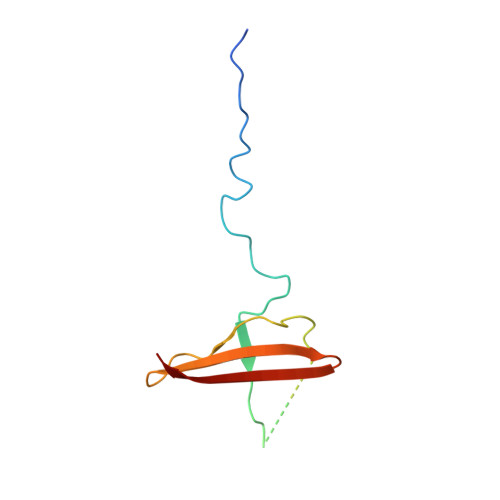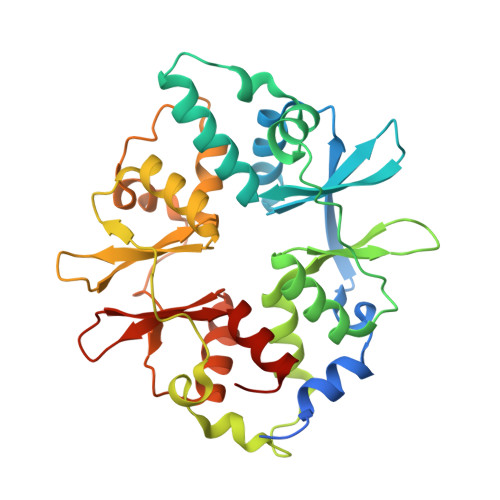Structural Basis for AMP Binding to Mammalian AMP-Activated Protein Kinase
Xiao, B., Heath, R., Saiu, P., Leiper, F.C., Leone, P., Jing, C., Walker, P.A., Haire, L., Eccleston, J.F., Davis, C.T., Martin, S.R., Carling, D., Gamblin, S.J.(2007) Nature 449: 496
- PubMed: 17851531
- DOI: https://doi.org/10.1038/nature06161
- Primary Citation of Related Structures:
2V8Q, 2V92, 2V9J - PubMed Abstract:
AMP-activated protein kinase (AMPK) regulates cellular metabolism in response to the availability of energy and is therefore a target for type II diabetes treatment. It senses changes in the ratio of AMP/ATP by binding both species in a competitive manner. Thus, increases in the concentration of AMP activate AMPK resulting in the phosphorylation and differential regulation of a series of downstream targets that control anabolic and catabolic pathways. We report here the crystal structure of the regulatory fragment of mammalian AMPK in complexes with AMP and ATP. The phosphate groups of AMP/ATP lie in a groove on the surface of the gamma domain, which is lined with basic residues, many of which are associated with disease-causing mutations. Structural and solution studies reveal that two sites on the gamma domain bind either AMP or Mg.ATP, whereas a third site contains a tightly bound AMP that does not exchange. Our binding studies indicate that under physiological conditions AMPK mainly exists in its inactive form in complex with Mg.ATP, which is much more abundant than AMP. Our modelling studies suggest how changes in the concentration of AMP ([AMP]) enhance AMPK activity levels. The structure also suggests a mechanism for propagating AMP/ATP signalling whereby a phosphorylated residue from the alpha and/or beta subunits binds to the gamma subunit in the presence of AMP but not when ATP is bound.
- MRC National Institute for Medical Research, The Ridgeway, Mill Hill, London NW7 1AA, UK.
Organizational Affiliation:



















